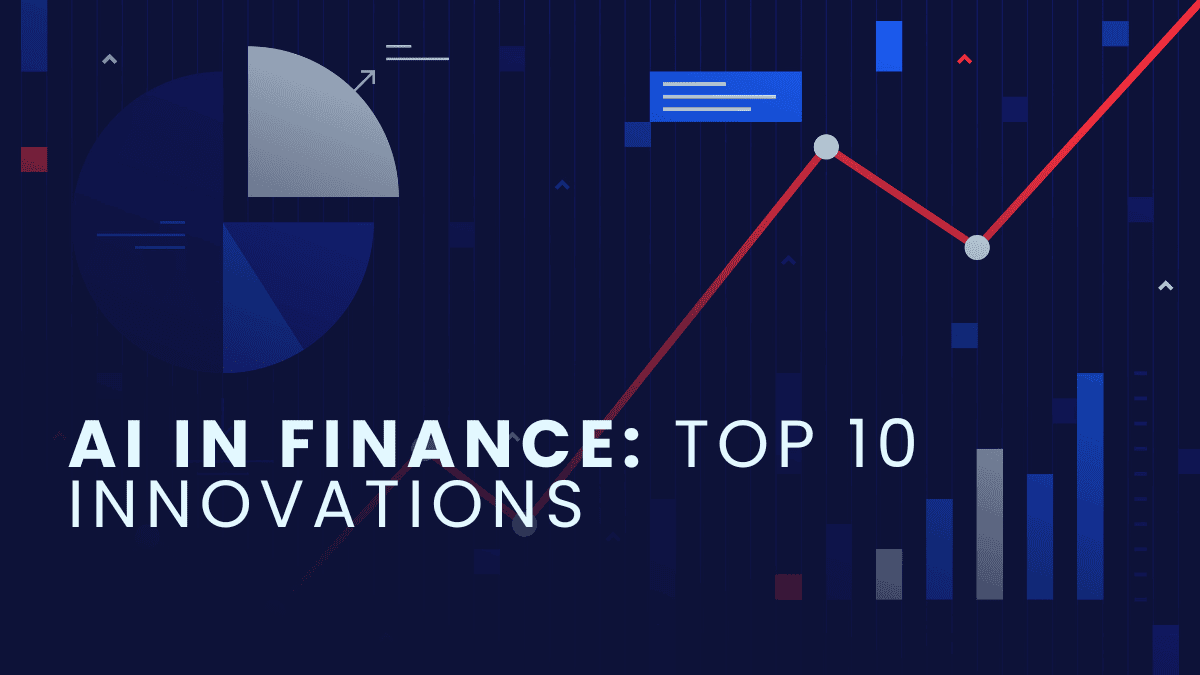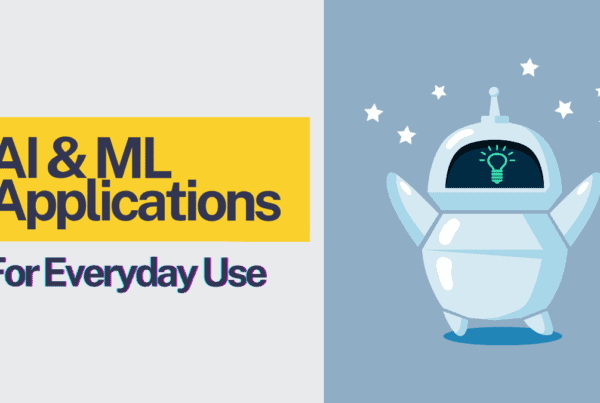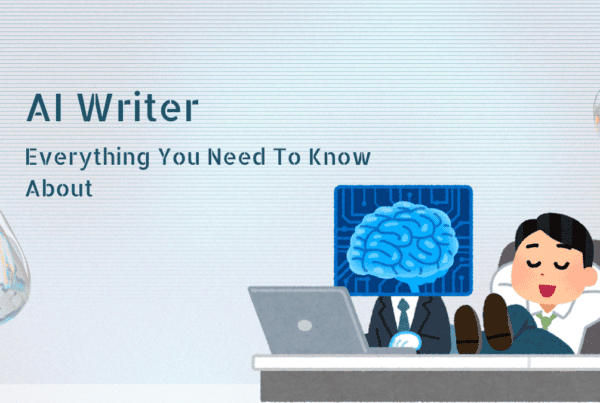
Welcome to the era where bytes and bitcoins collide, giving birth to financial innovations powered by the capabilities of artificial intelligence! Picture a world where your investments are guided by algorithms that can outsmart the market, and where the analytical prowess of machines backs your financial decisions.
In this digital age, financial innovation has donned a sleek new avatar—AI, the disruptor-in-chief, why? – Because “The global AI market is worth $328.34 billion”.
From algorithms executing trades at the speed of thought to robo-advisors shaping portfolios with a digital finesse, join me on a journey through the captivating landscape of AI-driven financial innovation.
It’s not just about numbers; it’s about the blend of code and capital, creating a symphony that resonates with the future of finance. Buckle up as we explore the frontiers where technology meets treasure.
Where is the Financial Industry Using AI?
AI has become one of the employees of banks and financial companies. It makes sure there are fewer mistakes when dealing with lots of information, like numbers and documents. By using special computer programs, it can do tasks automatically and follow the same steps every time, which helps to avoid errors.
Whether it’s sorting through data, analyzing information, handling documents, or even talking to customers, AI uses algorithms (kind of like step-by-step instructions) to make sure everything is done accurately and without mistakes. So, it’s like having a reliable assistant who never gets tired or makes human errors in important financial tasks.
AI in Finance: Top 10 Innovations
Today, we are going to dive in on a thrilling expedition through the world of finance, where AI has conjured up ten innovations that are reshaping the way we interact with our hard-earned money.
AI Boosts Cyber Security
AI plays a crucial role in enhancing cyber security by leveraging its advanced capabilities. In the realm of digital defense, artificial intelligence acts as a vigilant guardian, tirelessly monitoring and analyzing vast amounts of data in real-time.
Its ability to swiftly detect patterns and anomalies enables the identification of potential security threats before they escalate. Machine learning algorithms, a subset of AI, continuously evolve and adapt to new forms of cyber threats, providing a dynamic defense mechanism.
Additionally, AI facilitates rapid response to cyber incidents by automating incident response processes and mitigating risks more efficiently. Through intelligent threat detection, predictive analysis, and automated response mechanisms, AI empowers cyber security professionals to stay one step ahead of cyber foes, making our digital landscapes more secure and resilient.
Smart Investment Insights with Quantitative Analysis
AI revolutionizes the territory of investment by providing smart insights through quantitative analysis. The power of artificial intelligence lies in its ability to process vast amounts of financial data swiftly and accurately. Through sophisticated algorithms and machine learning models, AI can analyze historical market trends, assess economic indicators, and identify patterns that may elude human analysts.
This quantitative analysis enables investors to make informed decisions based on data-driven predictions, reducing risks and enhancing the potential for profitable investments. AI systems continuously learn and adapt, refining their predictive capabilities over time.
By automating complex calculations and data interpretation, AI empowers investors with valuable insights, allowing them to navigate the dynamic landscape of financial markets with greater confidence and strategic sharpness.
Your Banker: Chatbots and Robo-Advisors
Chatbots and robo-advisors are transformative tools (now widely used) in banking services, offering users a personalized and efficient experience. Chatbots serve as virtual assistants, engaging in natural language conversations with customers to provide quick answers to questions, guide through banking processes, and offer support in real-time.
This not only enhances customer satisfaction but also streamlines routine tasks, freeing up human agents for more complex issues. On the other hand, robo-advisors leverage algorithms to provide automated, financial advice based on data. They analyze user-specific information and market trends to offer tailored investment strategies, helping individuals make informed decisions about their finances.
This combination of chatbots for interactive customer service and robo-advisors for intelligent financial guidance not only improves accessibility to banking services but also contributes to a more seamless and user-friendly banking experience.
Algorithmic Magic in High-Speed Trading
AI injects algorithmic magic into high-speed trading, transforming the dynamics of financial markets. In the fast-paced world of trading, every second counts, and AI’s algorithmic prowess enables lightning-fast decision-making. Smart algorithms analyze vast amounts of market data, identifying patterns and trends that would be impossible for human traders to discern in real-time.
These algorithms execute trades at speeds that exceed human capabilities, capitalizing on fleeting market opportunities and minimizing risks. Machine learning algorithms continuously evolve, adapting to changing market conditions and refining strategies based on past performance.
The result is a seamless integration of AI-driven algorithms that bring a level of precision and speed to high-speed trading, allowing for more efficient and strategic participation in the volatile world of financial markets.
Efficiency Improved: Automation Everywhere
AI catalyzes the widespread adoption of automation in financial services, ushering in a new era of efficiency. Its role in automating routine and time-consuming tasks is particularly prominent, ranging from data entry and document processing to complex financial calculations.
Through machine learning and cognitive computing, AI systems can learn and adapt to evolving tasks, reducing the need for manual intervention. In customer service, chatbots powered by AI streamline interactions, providing instant responses and assistance. In the back office, automation ensures faster and more accurate processing of transactions, reducing the likelihood of errors.
Furthermore, AI-driven analytics automate the generation of insights from vast datasets, aiding in decision-making processes. This pervasive automation not only accelerates the pace of operations but also allows financial professionals to focus on more strategic and value-added activities, ultimately enhancing the overall efficiency and competitiveness of financial services.
Tailored Marketing and Recommendations
AI plays a pivotal role in the realm of tailored marketing and recommendations, reshaping the way businesses connect with their audience. By analyzing vast amounts of customer data, artificial intelligence can discern patterns and preferences, enabling the delivery of highly personalized content and recommendations.
Machine learning algorithms power recommendation engines, which suggest products or services based on individual user behaviors, past purchases, and demographic information. This not only enhances the customer experience by providing relevant and timely suggestions but also contributes to increased engagement and satisfaction.
AI-driven marketing automation further refines strategies, allowing businesses to target specific audience segments with customized messages. The result is a more effective and targeted approach to marketing, where each interaction is tailored to the unique preferences of the individual, fostering stronger connections between businesses and their customers.
Predictive Analytics: Taming Risks
AI plays a vital role in predictive analysis, becoming a formidable tool in taming risks across various domains. By harnessing the power of advanced algorithms and machine learning, artificial intelligence can sift through immense datasets to identify potential risks and forecast future trends.
In fields such as finance, healthcare, and cybersecurity, predictive analytics powered by AI enables organizations to proactively address and mitigate potential challenges before they escalate. These systems analyze historical patterns, recognize anomalies, and generate insights that empower decision-makers to implement preemptive strategies.
By anticipating risks and providing early warnings, AI in predictive analysis acts as a strategic ally, offering a valuable edge in navigating complex and dynamic environments while minimizing the impact of unforeseen events.
Sentiment Analysis from News and Social Media
AI’s role in sentiment analysis from news and social media is transformative, offering a powerful tool to understand the collective emotions and opinions of the online community. Through natural language processing and machine learning algorithms, artificial intelligence can go through vast amounts of textual data from news articles, social media posts, and comments to gauge the sentiment expressed.
This capability enables businesses and organizations to monitor public perception, identify trends, and respond promptly to emerging issues. Whether tracking brand sentiment, political sentiments, or public reactions to events, AI-driven sentiment analysis provides valuable insights that go beyond mere data, offering a deeper understanding of the emotional pulse of society.
By deciphering sentiments in real-time, businesses can adapt their strategies, manage crises effectively, and tailor their communication to align with the prevailing mood of the online landscape.
Regulatory Compliance Made Easy with RegTech
Regulatory compliance is streamlined and simplified with the integration of RegTech, where artificial intelligence and technology converge to make adherence to regulations more efficient. Regulatory Technology, or RegTech, employs advanced algorithms and automation to navigate the complex landscape of compliance requirements.
AI systems can quickly analyze vast amounts of data, ensuring that businesses adhere to the ever-evolving regulatory standards and reporting obligations. By automating compliance processes, RegTech not only reduces the likelihood of human error but also significantly cuts down on the time and resources traditionally required for compliance management.
This technological innovation allows organizations to stay up-to-date with regulatory changes, implement necessary adjustments, and demonstrate adherence with greater ease, ultimately fostering a more agile and compliant business environment.
Fraud Detection and Prevention, Automated
AI serves as a vigilant guardian in automated fraud detection and prevention, providing an advanced and proactive defense against deceptive practices. Through sophisticated machine learning algorithms, artificial intelligence analyzes vast datasets in real time, identifying patterns and anomalies indicative of fraudulent activities. Whether in financial transactions, online interactions, or identity verification, AI can swiftly recognize irregularities and flag potential threats for further investigation.
The dynamic nature of machine learning allows these systems to continuously evolve and adapt to new and evolving fraud tactics. By automating the detection process, AI not only enhances the speed at which fraudulent activities are identified but also minimizes false positives, enabling businesses to respond promptly to potential threats while maintaining operational efficiency. This fusion of technology and intelligence creates a robust and efficient mechanism for safeguarding against fraud in various domains.
The Future of AI in Finance
As more businesses use AI, new ideas like decentralized finance (DeFi), predicting behaviors, and recognizing speech for documents will shake up finance. Both big companies and new ones are spending a lot on AI to change finance.
Banks and other financial companies will have to make plans for using AI in everything from handling data to making sure models are used correctly. With careful use of AI, banking, and finance could become more available, efficient, and valuable.
Conclusion
In this fascinating journey where technology meets treasure, AI emerges as the disruptor-in-chief, transforming financial landscapes. From cyber security to smart investments, the wizards of AI summon innovations that help reshape how we handle our money.
These innovations include AI boosting cyber security, providing smart investment insights, and acting as your banker through chatbots and robo-advisors. Algorithmic magic powers high-speed trading, while automation everywhere unleashes efficiency in financial services. Tailored marketing, predictive analytics, sentiment analysis, and RegTech simplify various aspects of finance.
Hedge funds and family offices harness these innovations to navigate the complex world of investments and financial planning. Despite financial ups and downs, companies like Powerfleet, Codexis, and Cepton are emerging as potential big players in the AI and data analytics space.
As we look to the future, these companies, much like the legendary Nvidia, are on the radar of investors seeking the next big player in the ever-evolving landscape of AI-driven financial innovation.



